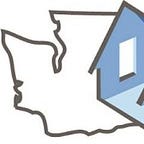Property Performance Metrics – Return on Investment vs. Return on Equity
Educational Article Series for Owners of Investment Real Estate
Roger W. Bowlin | Real Estate Transition Solutions, LLC
Quality data is the cornerstone of effective decision making. While it is rarely possible to have perfect information, especially regarding future projections such as how long our current market cycle will last, owners can and should have a firm grasp of both their properties’ current and historic operating data.
We work regularly with owners who are considering transitioning their properties for a myriad of reasons. In today’s market many owners are motivated to transition due to: the market cycle, the City of Seattle’s increasingly difficult regulatory environment, their own personal lifestyle choices, elimination of active management, and/or a desire to improve current cash flow. All these factors are legitimate considerations that we take into account when developing a transition plan. However, many of these factors are personal decisions and others, such as what new rental regulation may be passed in the coming 2–5 years, are difficult to predict with any level of certainty. That being said, property performance metrics are grounded in verifiable data and should be given sufficient attention.
Cash flow metrics can be viewed in two ways: the first is as a Return on Investment or “ROI”, the second is as a Return on Equity or “ROE”. Return on Investment tells an owner how well their original investment performed during its life. Calculation of this metric is done by comparing the net cash flow (rental income, less operating expenses and debt servicing costs) over the years to the original investment made in the asset (often the down payment on the property plus any large capital expenditures that improved the property). ROI is the metric an owner wants to use when asking themselves, “Was this a good investment?” When considering a transition of the property through either a sale and exchange or a sale and payment of the associated tax liability, this metric falls short because the appreciation many Puget Sound investment properties have enjoyed over the past 5, 10, and 20+ years is not considered. To capture the property’s appreciation and evaluate any sort of replacement property options, we must turn to the Return on Equity metric.
Return on Equity is calculated by comparing the earlier defined net cash flow to the implied equity held within the property. Determining the implied equity of a property requires the owner have a good pulse on the current fair market value of their property. There are multiple ways to determine this value, an overview of which warrants an article on its own. Once a value has been determined, the outstanding mortgage balance and projected closing costs are deducted to arrive at implied equity. The current net cash flow is expressed as a percentage of the implied net equity, resulting in the property’s ROE. This metric is critical for comparing the cash flow to other replacement properties an owner could perform a tax-deferred 1031 exchange into.
Since many rental properties in the Puget Sound have appreciated at a faster rate than the properties’ rents and net cash flow, it is not uncommon for us to provide replacement property options that can significantly enhance the current cash flow owners enjoy. If you are interested in learning more about these important property performance metrics as they relate to your property and what other options are available that may improve the current cash flow you receive, feel free to contact us.
Roger W. Bowlin, President of Real Estate Transition Solutions, LLC, provides exit strategy analysis, execution, income and equity replacement options for investment property owners. If you have questions relating to your investment property ownership, please email him at: RWBowlin@RE-Transition.com or call (206) 755–7068.
